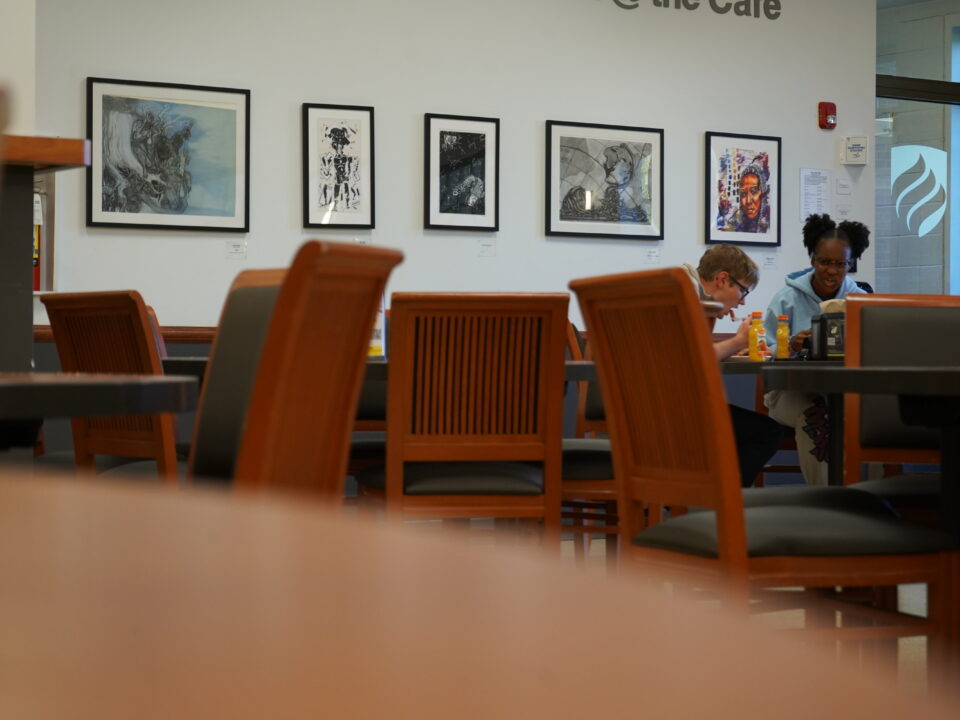Banned books week starts conversation on censorship issues with authors

Banned Books Week occurred from Sept. 14-24. This week highlights the problems authors all over the world face everyday: censorship.
According to PEN America, “The 1,648 titles are by 1,261 different authors, 290 illustrators, and 18 translators, impacting the literary, scholarly, and creative work of 1,553 people altogether.”
Over 1,000 book titles have been banned in school libraries and classrooms between July 2021 to June 2022. American youth are unable to read these books due to parents and school boards deeming them “inappropriate.”
Most banned books are on subjects that do not get enough recognition throughout society. A few topics that are banned or challenged include race and racism in American history, LGBTQ+ identities, and sexual education in schools.

Graphic by- Abbey Mark
Within the past few years these topics have been highly debated. Parents and school boards have focused on these topics to protect their children, claiming that they will influence children one way or another.
However, banning the literature that discusses these topics just promotes more ignorance. How can we expect inheriting generations to find solutions to any of America’s current issues when they are not allowed to read about them?
So far, books have been banned in 138 school districts in 32 states across the United States. Illinois has banned books in four of these districts. Will it be contained to these four, or will Illinois start competing with Texas for the most bans?
This censorship is not contained just to schools, but public libraries as well. The Downers Grove Public Library was forced to cancel their Drag Bingo event planned for National Coming Out Day due to severe threats made against them.
The books that are being banned are typically written by or are about marginalized communities; however, other books that have been banned are simply voicing opinions about American society.
The most banned book in America is “1984” by George Orwell. This book is about a government controlling and watching everything. What does it say about ‘The Land of the Free’ when this is the most banned book of all time?
Furthermore, the banning of “Fahrenheit 451” only proves Ray Bradbury’s point about the dangers of ignorance and censorship. To quote the novel, “There is more than one way to burn a book. And the world is full of people running about with lit matches.”
Authors have expressed their opinions on book banning for years. Poet Maya Angelou, who wrote “I Know Why the Caged Bird Sings” along with other great works, said, “I’m always sorry that people ban my books. Many times I’ve been called the most banned. Many times my books are banned by people who never read two sentences.”
Margaret Atwood reacted to book banning laws by making a fireproof version of her book “The Handmaid’s Tale.” Atwood auctioned this copy off on Jul. 5, 2022 to raise money for PEN America.
Literature has a powerful voice in society. It can cause revolutions, call out problems in society, and give communities, particularly minorities, a stronger voice. Works such as Thomas Paine’s “Common Sense”, Harper Lee’s “To Kill a Mockingbird”, and Maia Kobabe’s “Gender Queer” are essential to understanding and changing society.
Restricting this literary expression can cause detrimental effects to free speech. There is a reason a dictator’s first step is to restrict the arts.
Look at how the government controls a whole country’s past, present, and future in “1984.” See how the lack of literature destroys communities in “Fahrenheit 451.” Read how a lack of education ruins families in the “Unwind” series by Neal Shusterman.
So many individuals understand how important and bad this censorship is, but not enough people are doing anything about it. How many people knew Banned Books Week was last week? How many knew Banned Books Week existed at all?
The A.C. Buehler Library has a banned books display, but why can’t we do more? A display can bring a little attention to the issue, but a little attention isn’t going to change the banning trend affecting the country.
Elmhurst University could have done more to acknowledge Banned Books Week, such as set up a speaking event with an author or have some kind of announcement. Anything would have been better than nothing.
I ask all of you to do something rather than nothing. Read these books. Protest these bans. If you went to high school in some of these districts banning books, write to them. Don’t let these censorships promote ignorance. Give these authors back their voices.


